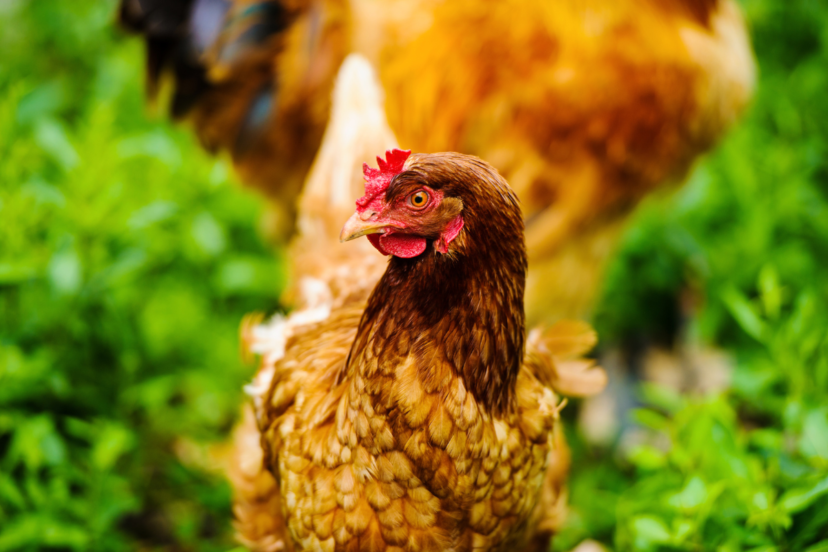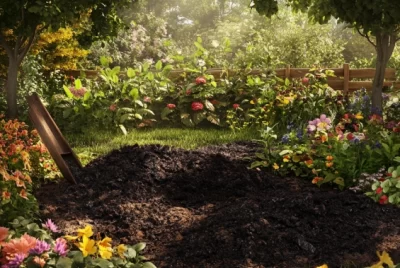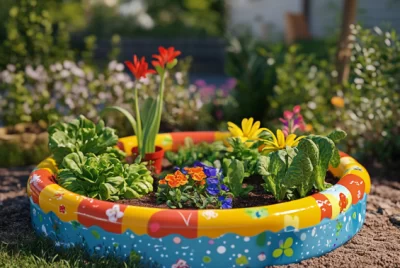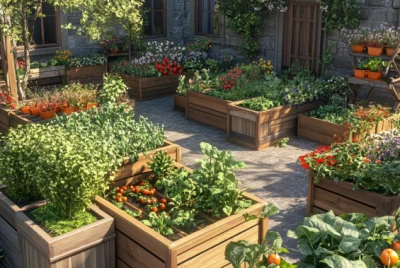Chicken Gardening: Your Natural Gardening Helpers
Introduction to Chicken Gardening
Chicken gardening is a unique and rewarding approach to combining the care of chickens with the cultivation of a garden. This practice not only provides fresh produce but also benefits the garden ecosystem. Many gardeners find that integrating chickens helps control pests and fertilizes the soil naturally, making it a sustainable choice. However, like any farming practice, it comes with its own set of challenges, such as managing space and protecting plants from curious beaks. In this article, we’ll explore the ins and outs of chicken gardening, showing you how to harmonize the needs of both your feathered friends and your plants.
Understanding Chicken Gardening
Definition and Scope
Chicken gardening involves raising chickens in a shared space where both plants and chickens thrive. Typically practiced in backyards, this method can be adapted to various settings, from small urban gardens to larger rural areas. The idea is to create a symbiotic environment where chickens contribute to the garden’s health while benefiting from the food and shelter it offers.
Benefits
The benefits of chicken gardening are plentiful. For starters, chickens provide natural pest control. They eat insects and other small pests that can harm your plants. Their droppings are rich in nutrients, acting as an excellent fertilizer that enhances soil fertility without the need for chemical fertilizers. Additionally, chicken gardening can reduce waste, as kitchen scraps and garden trimmings can feed the chickens, saving on feed costs and reducing garbage.
Chicken Gardening: Planning Your Garden
Space Requirements
Before diving into chicken gardening, it’s important to consider how much space you have. Chickens need room to roam and forage without harming the plant areas. A good rule of thumb is to allocate about 10 square feet per chicken in the coop and twice that in an outdoor run. For the garden, ensure there’s enough space to grow the plants you want without overcrowding, keeping in mind that some plants need more room than others.
Choosing Chickens
Not all chicken breeds are suitable for gardening. Some are better at foraging and more docile, which makes them less likely to damage delicate plants. Breeds like the Buff Orpington and the Plymouth Rock are known for their gentle nature and effectiveness at controlling pests without too much disruption to the garden.
Plant Selection
Selecting the right plants is crucial in chicken gardening. You’ll want to choose robust plants that can withstand occasional pecking, such as hardy herbs, leafy greens, and root vegetables. It’s also wise to avoid plants that are toxic to chickens, including plants like rhubarb leaves, azaleas, and foxglove.
These initial steps lay the foundation for a successful chicken garden that benefits both you and your chickens. As we delve deeper into designing the garden layout, integrating chickens, and ongoing maintenance, remember that patience and adaptability are key to thriving in chicken gardening.
Chicken Gardening: Designing the Garden Layout
Zoning the Garden
When planning your chicken garden, it’s essential to think about how you will divide the space between your chickens and your plants. This is called zoning. One effective method is to create a rotating garden system, where chickens are allowed in one part of the garden at a time. This method helps the soil recover and maintain its nutrients. For example, you might divide your garden into three zones and rotate the chickens through these zones throughout the year.
Barrier and Protection
To keep both chickens and plants safe, you’ll need to think about barriers. Fencing is crucial to protect your plants from being over-foraged by your chickens. Chicken wire or garden netting can be used to fence off specific areas of the garden or individual plants. Additionally, ensure the chickens’ own area is secured against predators such as foxes or raccoons with sturdy fencing buried deep into the ground to prevent digging.
Chicken Gardening: Integrating Chickens into the Garden
Feeding Regimes
While chickens can forage for bugs and greenery in the garden, they’ll still need a balanced diet. Supplement their diet with commercial chicken feed, calcium supplements for egg-laying hens, and occasional treats like seeds and fruits. Avoid feeding chickens harmful scraps like onions, chocolate, or anything moldy. Remember, a healthy chicken is more beneficial to your garden, producing better manure and more effective pest control.
Managing Chicken Behavior
Chickens can sometimes scratch at the soil and peck at plants more than you might want. To manage this, you can use low barriers around seedlings or more delicate plants. Giving your chickens plenty of space to roam and providing them with designated dust bath areas or perches can also reduce their need to disturb planted areas.
Chicken Gardening: Maintenance
Health Monitoring
Regularly check your chickens for signs of illness, such as lethargy, abnormal droppings, or loss of feathers, which could indicate parasites or diseases that could spread throughout your flock and potentially affect your garden’s health. Setting up a routine for health checks and vaccinations with a vet familiar with poultry is a good practice.
Plant Care
Your garden plants will need regular watering, fertilizing, and pruning to thrive alongside chickens. Chickens can help with pest control and fertilization, but remember to complement their contributions with organic fertilizers like composted chicken manure (be sure to let it age to avoid burning plants). Regularly check plants for signs of nutrient deficiencies or over-fertilization and adjust your care accordingly.
Challenges and Solutions of Chicken Gardening
Predators and Pests
While chickens can help control pests, the presence of chickens might attract predators. Secure your chicken coop and run with predator-proof materials. As for pests like aphids or mites, chickens might not catch them all, so consider integrated pest management practices like introducing beneficial insects or using organic sprays.
Weather Considerations
Different weather conditions pose different challenges in a chicken garden. In hot climates, ensure chickens have shade and water to prevent overheating. In colder climates, provide a well-insulated coop and consider planting cold-hardy plants that can withstand lower temperatures.
Navigating these challenges with smart planning and proactive management will help ensure that your chicken garden is productive and sustainable, providing benefits and enjoyment for years to come.
Legal and Ethical Considerations of Chicken Gardening
Local Regulations
Before you start your chicken gardening adventure, it’s essential to check with local zoning laws and regulations related to keeping chickens. Some areas might have restrictions on the number of chickens you can keep, require specific types of housing, or have regulations against roosters due to noise concerns. Being informed and compliant ensures that your garden will not only thrive but also remain legal.
Ethical Farming Practices
Ethical treatment of chickens is not just about abiding by laws; it’s about ensuring the welfare of your chickens. Provide ample space, proper nutrition, and protection from harm. Happy and healthy chickens are more productive and better for your garden. Ethical practices also extend to using sustainable gardening methods that protect the environment and ensure the soil remains healthy and productive for future planting.
Chicken Gardening: Conclusion
Chicken gardening is a fantastic way to integrate sustainable agriculture practices into your daily life. By understanding and planning for your chickens’ and garden’s needs, you can create a thriving ecosystem that offers fresh produce and a healthy habitat for your feathered friends. Remember to consider the space requirements, choose the right chicken breeds, and select plants that coexist well with your chickens.
Designing your garden with proper zoning and barriers will help protect your plants and keep the chickens happy. Regularly monitoring the health of both your chickens and plants, along with addressing any challenges such as predators or weather conditions, will ensure your garden remains vibrant and productive.
Moreover, staying informed about local regulations and committing to ethical farming practices will not only keep you on the right side of the law but also ensure you are a responsible and conscientious gardener. Chicken gardening can be a fulfilling endeavor that connects you with the rhythms of nature and provides tangible rewards in the form of fresh eggs and vegetables.
Whether you’re an experienced gardener or just starting out, integrating chickens into your gardening practice can enhance your gardening experience, reduce your ecological footprint, and bring a new level of joy and productivity to your outdoor space. So, gather your tools, plan your garden, and get ready to enjoy the multitude of benefits that chicken gardening has to offer.
FAQs on Chicken Gardening
1. What are the best chicken breeds for chicken gardening?
Answer: For chicken gardening, breeds that are docile, good foragers, and less likely to damage plants are ideal. Buff Orpingtons, Plymouth Rocks, and Sussex chickens are great choices due to their gentle nature and efficiency at pest control.
2. How much space do I need to start a chicken garden?
Answer: The amount of space needed depends on the number of chickens and the size of your garden. Generally, plan for at least 10 square feet per chicken in the coop and double that for an outdoor run. Ensure there is enough space for your plants to grow without being overcrowded by the chicken areas.
3. Can chickens eat all garden scraps?
Answer: No, chickens cannot eat all garden scraps. Avoid feeding them harmful scraps like onions, chocolate, or anything moldy. Safe scraps include most vegetable peels, fruit scraps, and grains. Always ensure that what you feed your chickens is safe and healthy for them.
4. What are some common challenges in chicken gardening and how can I solve them?
Answer: Some common challenges include managing predator threats and protecting plants from chicken damage. To solve these, use sturdy, predator-proof fencing for the coop and chicken wire or garden netting to protect sensitive plants. Also, rotating chicken access in different garden zones can help manage plant protection.
5. What legal and ethical considerations should I keep in mind when starting a chicken garden?
Answer: Check local zoning laws and regulations related to keeping chickens, including any restrictions on the number of chickens or the presence of roosters. Ethically, ensure chickens have adequate space, proper shelter, and nutritional food. Additionally, use sustainable practices in your garden to promote soil health and biodiversity.




